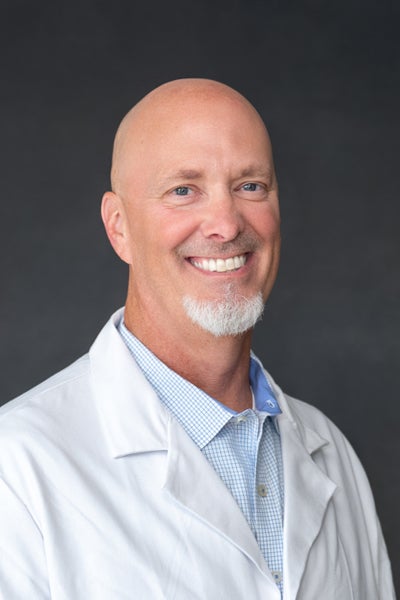
If you’ve been diagnosed with cancer, you may wonder what to do next. A good first step is to find an oncologist to guide you along your journey.
“An oncologist specializes in diagnosing and treating cancer,” says Dr. J. Eric Turner, board-certified and fellowship-trained medical oncologist with Beaufort Memorial Oncology Specialists. “Having the right oncologist by your side gives you confidence and clarity about what to expect and puts you at ease every step of the way.”
These eight considerations can help you find an oncologist who’s right for you.
The Right Oncologist for Your Cancer
There are many different types of oncologists. Pediatric oncologists care for childhood cancers. Gynecologic oncologists treat cancer cells found in the female reproductive system. Hematologist-oncologists treat blood and solid tumor cancers in adults. To find out which type of oncologist you need, determine the following information about your diagnosis:
- Cancer name — Currently, there are more than 100 known types of cancer. Most cancer names indicate where the cancer began.
- Cancer stage — A cancer’s stage indicates whether the cancer has spread (metastasized) beyond where it began. Early-stage cancers may not have metastasized, but the definition of early stage can differ between cancer types. Late-stage cancers affect nearby or distant tissue or organs.
- Cancer treatment plan — Your treatment plan depends on many factors, such as the type and stage of your cancer. Common treatment options include surgery, radiation therapy, chemotherapy and immunotherapy.
Read More: Gynecologic Cancer: What Every Woman Should Know
Reputation Matters
Once you know the type of treatment you may need, you can start looking for a radiation oncologist, medical oncologist or surgical oncologist. To find one with a good reputation, talk with people who have interacted with various cancer providers.
People to talk with include:
- Coworkers and colleagues
- Family, friends and neighbors
- Primary care providers or other health experts
When seeking recommendations, it's important to be specific. Ask your friend or health provider why they believe a particular oncologist is a good fit for you. Additionally, looking at online reviews can provide valuable perspectives, and exploring potential referrals from trusted sources can further guide your decision-making process.
Investigate Your Oncologist’s Training
All oncologists go through rigorous training in medical school. After graduation, some continue their education. This helps health providers gain further insight into cancer care. It also provides specialty expertise.
Some of the training they may pursue includes:
- Board certification — To earn board certification, an oncologist must pass exams that prove deep understanding. They must then participate in ongoing education to maintain certification. Certification Matters allows you to quickly find out if an oncologist or other doctor is board certified.
- Fellowship training — Some oncologists specialize in treating specific cancers in pediatric or adult patients. This type of specialized expertise often comes during fellowship training. Fellowships last between one and three years and give oncologists focused expertise in their field of choice.
Real-World Experience Improves Your Experience
In the field of medicine, hands-on experience matters.
“Education is vital to prepare an oncologist,” Dr. Turner says. “However, experience is just as vital. More experienced oncologists lead to better outcomes.”
The benefits of working with an experienced cancer specialist include:
- Access to a wide range of resources that offer community support and ongoing education.
- Established relationships with other experts to provide comprehensive care
- Knowledge of potential treatment side effects and ways to reduce them
- Understanding all available treatment options and when to use each approach
An easy way to measure experience is the number of patients an oncologist has treated. That said, this number can be misleading, especially if you have a rare cancer. What seems like a low number of cases may actually be a lot of experience.
Read More: Get a Handle on Chemotherapy Side Effects
An Oncologist’s Personality and Approach
Treating cancer can take a long time. It often involves frequent treatment sessions and follow-up appointments that span months or longer. Over your journey, you’ll meet with your oncologist many times. Therefore, it’s important that you get along and like how your chosen provider approaches cancer care.
A few questions to help find an oncologist with a fitting personality and approach include:
- Am I encouraged to bring a family member or friend to appointments as support along my journey?
- Does the cancer provider stay updated on current research and attempt to provide advanced care, such as targeted therapy? Can the oncologist connect me with clinical trials that may provide new treatment options for my specific cancer?
- Is the oncologist blunt and to the point, or does the oncologist take time to ease me into hard truths?
- Will I have access to the oncologist after office hours? If so, do the office hours fit into my schedule?
- What are the hospital affiliations of the oncologist, and how do those institutions rank in terms of cancer care?
Whatever your preference, a pre-treatment consultation can help you decide if a specific oncologist is right for you. If not, keep looking until you find one with the personality and communication style you prefer.
Your Oncologist’s Team
Cancer care is bigger than your oncologist. Your care comes courtesy of a cancer care team, which may include:
- Advanced practice providers (nurse practitioners and physician associates)
- Dietitians or nutritionists
- Genetic counselors
- Nurses
- Nurse navigators
- Occupational, speech or physical therapists
- Pain management specialists
- Social workers
Read More: The Role of a Cancer Nurse Navigator
No matter how many members are on the team, you should be the captain.
“The days are over when you’re left out of treatment decisions,” Dr. Turner says. “Today, the best oncologists lay out your options and give the pros and cons of each. Then they guide you toward the care that best meets your goals and support you, no matter what choice you make.”
Insurance: In or out of Network
Cancer care is expensive, especially if your insurance provider doesn’t lend a hand. Before scheduling a consultation, find out if the oncologist is in your insurance network. If not, you may need to find another care provider, though you do have options.
“If there’s a good reason to go out of network, your insurance company may cover your care,” Dr. Turner says. “However, out-of-network coverage is a rare exception, so you should always check and double-check with your carrier to ensure coverage.”
World-Class Oncologists in Your Area
Finding an oncologist you can trust can feel overwhelming. Beaufort Memorial makes it easy. Our well-rounded cancer care services give you immediate, easy access to advanced therapy approaches, clinical trials and caring experts who put you at the center of every care decision.
“We’re here to help our community members who need quality cancer care,” Dr. Turner says. “They deserve the best experiences and outcomes, and we go out of our way to provide both every day.”
Call 843-522-7800 to schedule an appointment with our cancer care team or find a Beaufort Memorial cancer care provider online.


